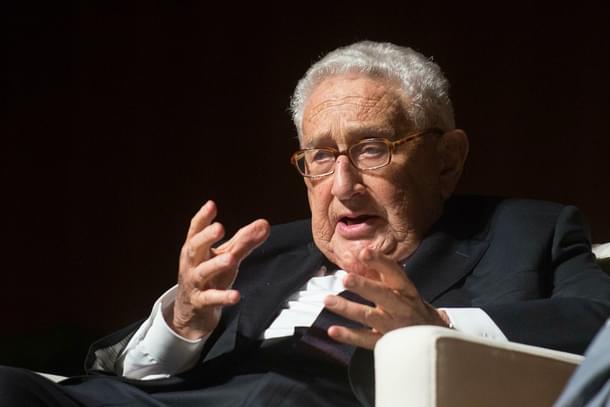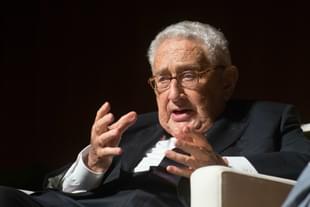World
Henry Kissinger, Who Played Key Role In Shaping US Foreign Policy For Decades, Dies Aged 100
Swarajya Staff
Nov 30, 2023, 08:29 AM | Updated 08:29 AM IST
Save & read from anywhere!
Bookmark stories for easy access on any device or the Swarajya app.


Henry Kissinger, former US secretary of state and one of the most controversial Americans of the twentieth century, died at the age of 100 in Connecticut.
Kissinger's legacy is a complex one, marked by the deaths of millions in the Vietnam War, which ended in a devastating defeat for America, but also his strategic diplomacy in the early 1970s, which successfully forged connections between Washington and Beijing through a careful balance of interpersonal relationships and covert operations of a scale not seen before.
Kissinger died at his home in Connecticut, Kissinger Associates said.
During his final active months, Kissinger was a frequent presence at White House meetings, where he was highly respected, even in informal roles.
In a notable event in July 2023, he made a surprise visit to Beijing to engage with Chinese President Xi Jinping. This was a significant diplomatic move, as Kissinger had been instrumental in establishing this relationship nearly 50 years prior, marking a pivotal moment in 20th-century geopolitics.
The scholar-turned-diplomat advised a dozen US Presidents, from John F. Kennedy to the current President Joe Biden.
A German-Jewish refugee in the United States, Kissinger is celebrated, reviled, and denounced in different parts of the world.
Kissinger frequently disregarded the alleged American values that Washington formally championed throughout and even beyond the Cold War, in order to fulfill American interests.
He is acclaimed as an extreme realist who, whether for good or ill, altered every diplomatic equation he came into contact with.
Kissinger utilised his ambition and intelligence to transform the US' relationship with the Soviet Union throughout the Cold War. His successful implementation of the concept that 'America has no permanent friends or enemies' into twentieth-century geopolitical trends continues to influence Washington's current global perspective.
During the 1970s, while functioning as the secretary of state under the Republican President Richard Nixon, the German-born Jewish refugee played a significant role in several world-altering events of the era.
His endeavors resulted in the diplomatic engagement with China, the notable US-Soviet arms control discussions, the broadening of relations between Israel and its Arab neighbors, and the Paris Peace Accords with North Vietnam.
During the India-Pakistan War of 1971, Nixon and Kissinger faced substantial criticism for their apparent bias towards Pakistan.
Kissinger's derogatory comment about the Indians, which he later expressed regret for, added fuel to the fire of criticism.





